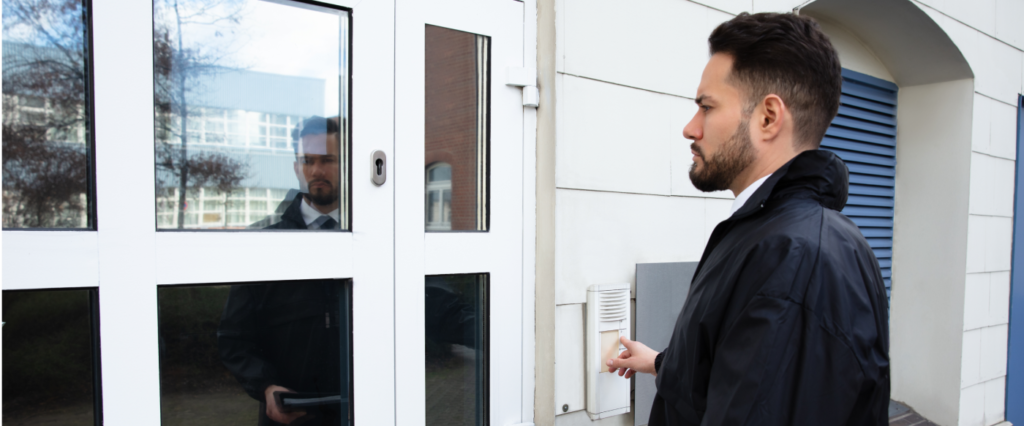5 Common Questions about Bailiffs
Debt Solutions
Mar 18, 2022 ● 6 min

Receiving a visit from a bailiff can be very stressful. Even with advanced notice, it’s never a pleasant experience to go through.
Here are 5 of the most common questions we hear about bailiffs and what you can do if you are being warned of bailiff action:
- What are bailiffs?
- What can I do to stop bailiffs?
- What debts do bailiffs collect?
- What are bailiffs allowed to do?
- Can bailiffs take my possessions?
1. What are Bailiffs?
Bailiffs are agents who are employed to collect your debts. Many of them work for private debt collection agencies, or they may be self-employed.
There are different types of bailiff for different circumstances, such as the following:
- County Court Bailiff
- High Court Enforcement Officers
- Private Bailiffs
- Magistrates Bailiffs
They are sent to your home to recover money owed to a creditor, with the aim of getting a payment from you directly or if not, taking possessions that can be sold to pay towards the debt.
It’s important to know that if the debt they are attempting to recover is included in a debt solution – such as an IVA – then the bailiffs legally must not be attending your property and you should notify them of this immediately.
2. What can I do to stop bailiffs?
Once bailiff action is ordered against you, it’s highly unlikely to go away on its own, even if you keep your doors locked and refuse to speak with them.
The main way bailiffs will cease their visits is if you pay the money you owe. If you do manage to pay upfront, then it’s advisable to request a receipt of this to stop further visits.
An alternative way to stop bailiff action is by showing that you are actively attempting to get on top of the money you owe, such as applying for a debt solution.
It’s also important that the bailiffs are acting lawfully, and if you are in any doubt you can always contact your local Citizens Advice for support.
3. What debts do bailiffs collect?
Bailiff action is often a last resort for creditors, but the main debts that bailiffs are sent to recover include:
- Council tax
- CCJs (County Court Judgements)
- Parking fines
- Criminal fines
- Child maintenance arrears
Bailiffs are highly unlikely to attend for debts such as catalogue or credit card arrears, however, if any creditors that you have these debts with take you to court, you may be issued with a CCJ – bailiffs may then attend to collect this.
4. What are bailiffs allowed to do?
Bailiffs must give you a 7 day written notification that they will attend your property, and they may only visit between the hours of 6am and 9pm.
They may only enter your property if you invite them in, or alternatively through an unlocked door. They must not use force to enter your home, although there are certain circumstances where a bailiff may have a warrant to do so. Also, they must not enter if you are vulnerable or if the only people in the house are under the age of 16.
Bailiffs are also allowed to charge you for their visits, which can cause your debt to increase – these fees can quickly build up if they have to arrange multiple visits.
If a bailiff is refused entry to your home but your car is parked outside, then they may be allowed to take this as payment.
5. Can bailiffs take my possessions?
The purpose of a bailiff visit is to recover money owed to creditors. First and foremost they will attempt to get a payment from you upfront to pay the debt, or you may even be able to set up a payment plan. If this isn’t possible, then bailiffs are allowed to take expensive possessions to be sold.
These may be items such as:
- Expensive jewellery
- Game consoles
- Cars
That said, there’s many items that bailiffs are not allowed to seize, such as:
- Living items such as fridges and washing machines
- Beds and clothes
- Cars and tools needed for work
Received a bailiff letter?
If you have, it’s best to act sooner rather than later. Many people would rather look into debt solutions than go through bailiff action, and that’s where we can help! At Money Advice, we help a number of people who have been threatened with bailiff action everyday.
Together, we can go through your situation and learn what’s going on. We can discuss debt solutions that involve legal protection from your creditors, so if your bailiff debt can be included then we can look into getting together an application. It’s then likely that a creditor will then put your account on hold for 30 days whilst the application is considered.
So don’t hesitate, put a stop to bailiffs and get debt help with us today.